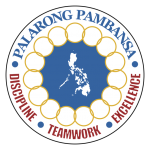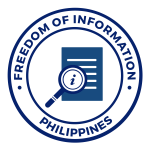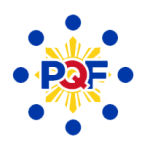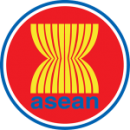The Alternative Learning System (ALS) is a parallel learning system in the Philippines that provides opportunities for out-of-school youth and adult (OSYA) learners to develop basic and functional literacy skills, and to access equivalent pathways to complete basic education.
A viable alternative to the existing formal education system, ALS encompasses both non-formal and informal sources of knowledge and skills. As a second chance education program, it aims to empower OSYA learners to continue learning in a manner, time and place suitable to their preference and circumstances, and for them to achieve their goals of improving their quality of life and becoming productive contributors to society.The 1987 Philippine Constitution provides for the recognition and promotion of other forms of education other than formal education. Article XIV, Section 2, Paragraph (1) declares that “the State shall establish, maintain and support a complete, adequate and integrated system of education relevant to the needs of the people and society”; and paragraph (4) concisely encourages “non-formal, informal and indigenous learning systems as well as self-learning, independent and out-of-school study programs particularly those that respond to community needs.”
The Governance of Basic Education Act, otherwise known as Republic Act 9155, stipulates the establishment of the Alternative Learning System (ALS) to provide out-of-school children, youth and adults population with basic education.
On December 23, 2020, the President of the Philippines signed Republic Act No. 11510, or “An Act Institutionalizing the Alternative Learning System in Basic Education for Out-of-School Children in Special Cases and Adults, and Appropriating Funds Therefor,” which provides the much needed support to further expand and strengthen the implementation of ALS throughout the country.Interested ALS learners should complete and submit the following requirements to ALS teachers in your area or to the Schools Division/District Office:
- Photocopy of birth certificate (PSA) / baptismal certificate
- 2x2 ID picture (white background)
- Form 137 (only for learners from the formal education system)
The ALS primarily uses learning modules for its learners. Each module contains learning activities, and pre- and post-assessments. Modules for basic levels include a facilitator’s guide, while modules for advanced levels are designed for self- or independent learning. These are provided by the ALS teacher to the learners.
Supplementary materials like text and non-text modules, self-learning instructional materials, learning activity packages, online or digital modules, textbooks, e-modules, or blended technology learning materials from the home or other sources may also be used.Learning sessions may be conducted at any place or space referred to as Community Learning Center (CLC) which is convenient to the learners.
A CLC is a physical space to house learning resources and facilities of a learning program for out-of-school children in special cases and adults; and it is a venue for face-to-face learning activities and other learning opportunities for community development and improvement of people’s quality of life.
The CLCs are categorized into five types:
| Type | Description |
|---|---|
| 1 | simple, makeshift or temporary meeting place (e.g. chapel or any open multi-purpose area temporarily lent for learning purposes by the barangay or any private property) with tables, charts, and chalkboard |
| 2 | semi-concrete structure mostly made of light materials such as nipa, soft wood, etc., dedicated to ALS learning sessions and related activities, and equipped with basic furniture and appliances (e.g. electric fan) and learning equipment |
| 3 | typical barangay learning center, secured and mostly made of cement and other concrete materials; dedicated to ALS learning sessions and related activities, and equipped with basic furniture and learning equipment (e.g. chairs, tables, chalkboard, library corner, cassette recorder) and basic appliances (e.g. electric fan) |
| 4 | two or three-story building fully equipped with basic furniture and advanced ICT equipment for learning, dedicated to ALS learning sessions and related activities |
| 5 | A permanent building equipped with ALS learning materials and other learning resources are being utilized by learners and other members of the community; the materials are either being transported from house to house, or borrowed by interested community members from the CLC for literacy and continuing education |
- A&E elementary level passer → Junior High School (JHS)
- A&E JHS level passer → Senior High School (SHS) / TESDA
- A&E SHS level passer → college / TESDA / employment





